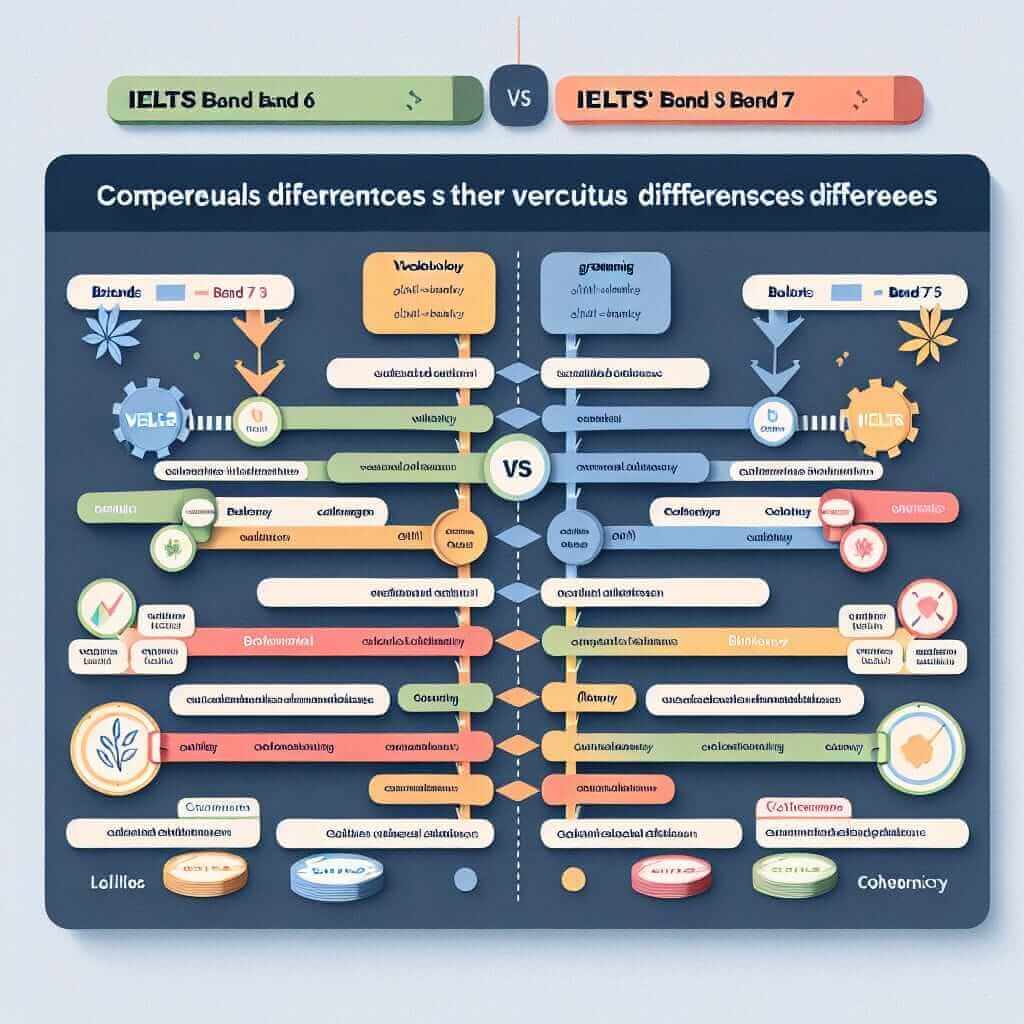The Challenge of Reaching IELTS Band 7
For many aspiring IELTS test-takers, achieving a band score of 7 represents a significant milestone. This score signifies a “good user” of the English language, demonstrating a strong command of grammar, vocabulary, and coherence. However, transitioning from a band 6 to a band 7 can feel like a considerable leap. This article, crafted from my 20 years of experience as an IELTS instructor, is here to guide you through this journey.
Understanding the Gap: Band 6 vs. Band 7
Let’s first acknowledge the key differences between these two band scores:
Band 6: Competent User
- Generally effective communication: Can understand and convey the overall meaning in most situations, though some inaccuracies and misunderstandings may occur.
- Grasps complex language: Can handle complex language but may not always use it with accuracy and flexibility.
- Occasional errors: Makes some grammatical and lexical errors, but they rarely hinder communication.
Band 7: Good User
- Operates effectively and flexibly: Can handle complex and unfamiliar situations with ease and accuracy.
- Consistent accuracy: Shows a good control of grammar and vocabulary, with only occasional errors.
- Coherent and fluent: Produces well-structured and coherent speech, using a range of cohesive devices effectively.
As you can see, a band 7 requires not just improved accuracy but also a higher level of fluency, flexibility, and sophistication in your language use.
Key Strategies to Bridge the Gap
Here’s how you can effectively target these areas:
1. Master the Art of Paraphrasing
Paraphrasing is essential for demonstrating a wider range of vocabulary and grammatical structures.
Example:
Original: The internet has had a significant impact on education.
Paraphrased: The advent of the internet has revolutionized the educational landscape.
2. Expand Your Vocabulary Strategically
Focus on learning topic-specific vocabulary related to common IELTS themes like education, technology, and the environment.
Example:
Instead of just “improve,” use words like “enhance,” “augment,” or “refine” to demonstrate a broader vocabulary.
3. Refine Your Grammar Skills
Pay attention to complex grammatical structures like conditional sentences, relative clauses, and passive voice. Aim for accuracy and variety in your grammar usage.
Example:
Instead of “I went to the park and I saw my friend,” use “While strolling through the park, I encountered my friend,” which incorporates a more complex sentence structure.
4. Develop Coherence and Cohesion
Use linking words and phrases effectively to connect your ideas and create a smooth flow in your speech and writing.
Example:
Use connectors like “Furthermore,” “However,” “In contrast,” and “Consequently” to show clear relationships between your ideas.
5. Practice Speaking with Native or Fluent Speakers
Regularly engaging in conversations with fluent English speakers can significantly enhance your pronunciation, fluency, and natural language use.
6. Seek Expert Feedback
Having an experienced IELTS tutor provide personalized feedback on your strengths and weaknesses is invaluable. They can pinpoint areas needing improvement and offer tailored strategies.

Illustrative Examples from IELTS Speaking
Question: How has technology changed the way we learn?
Band 6 Answer: Technology… big change… learn online… good and bad.
Band 7 Answer: The advent of technology has profoundly transformed the educational landscape. Online learning platforms, for instance, have democratized access to education, enabling individuals from diverse backgrounds to acquire knowledge and skills remotely.
Essential Tips for Success
- Embrace consistent practice: Dedicate time each day to practice all four IELTS modules.
- Simulate exam conditions: Regularly attempt timed practice tests to familiarize yourself with the format and time constraints.
- Analyze your mistakes: Don’t just focus on your scores. Carefully review your errors to identify patterns and areas needing further development.
- Stay motivated and persistent: Improving your language skills takes time and effort. Stay focused on your goals and celebrate your progress.
Conclusion
Moving from a band 6 to a band 7 in IELTS demands focused effort and a strategic approach. By strengthening your vocabulary, mastering grammar, enhancing coherence, and seeking expert guidance, you can confidently aim for your desired score. Remember, consistent practice and a positive attitude are key. Good luck on your IELTS journey!